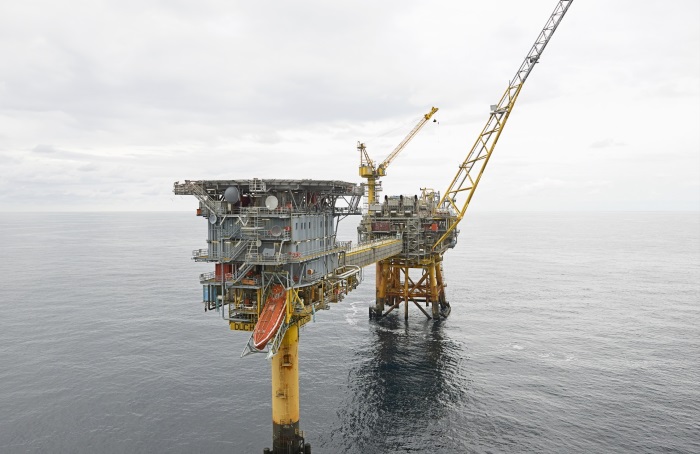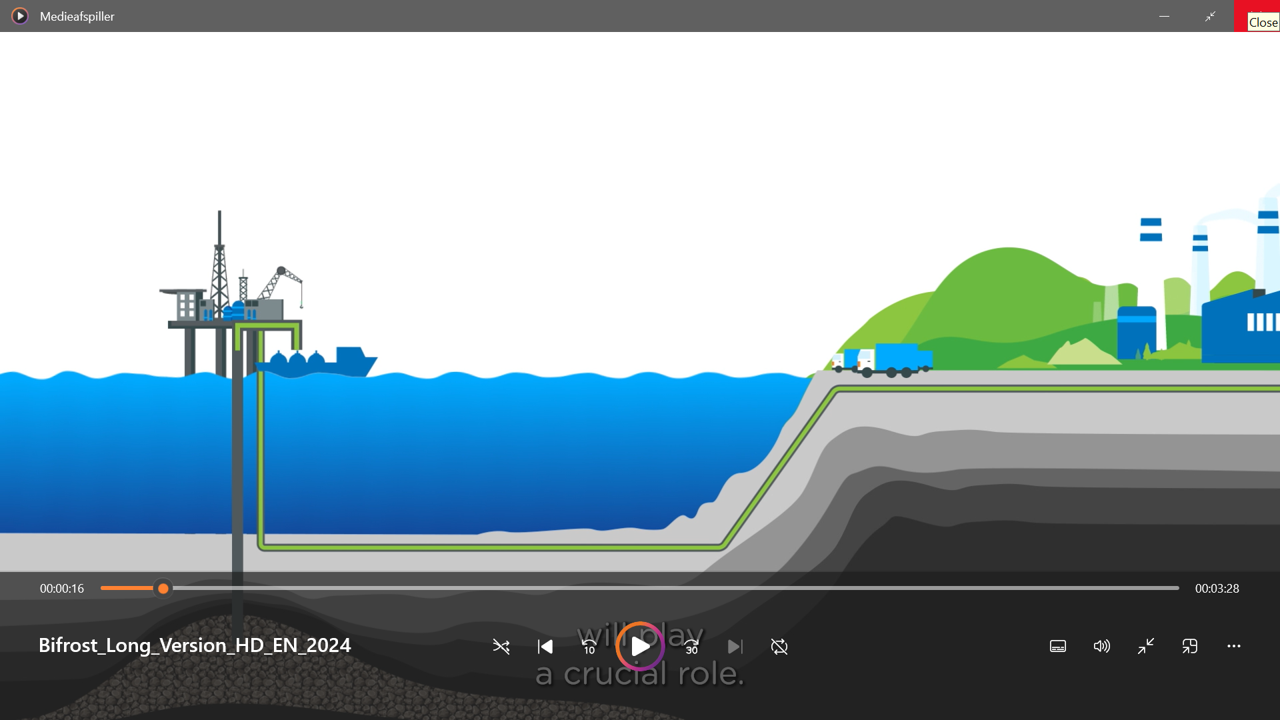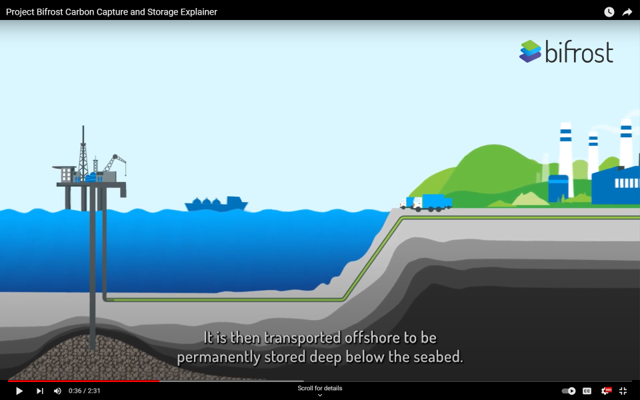Project Bifrost aims at unlocking the potential for CCS (Carbon Capture and Storage) in the Danish North Sea by reusing the existing infrastructure related to current oil and gas operations. The infrastructure consists of depleted offshore oil and gas fields owned by the DUC partners as well as the pipelines connecting to shore, which are owned by Ørsted.
The project aims at a permanent geologic storage of CO2, effectively building bridges from current fossil fuel extraction to carbon neutrality. Bifrost will therefore play a key role in reaching the Danish decarbonization goals, while at the same time providing an alternative to the work force currently connected to oil and gas production.
Bifrost was awarded its full funding request from the ‘Energy Technology Development and Demonstration Programme’ (EUDP) – a Danish public subsidy scheme.
Sandstone vs chalk
The project focuses on the Harald field in the North Sea. The field has two developed gas reservoirs: The Harald West sandstone and the Harald East chalk. Bifrost seeks to demonstrate the reuse of existing wells for injection and storage of CO2 in the sandstone reservoir.
Further, an important part of project Bifrost is to demonstrate the feasibility of CO2 storage in chalk reservoirs. This will enable a substantial scale-up for the geological storage potential in Danish waters, as other DUC chalk fields may be repurposed for CO2 storage as production ceases.
Bifrost will also analyse and demonstrate how to transport the CO2 to the storage facilities as well as assess environmental risks. In addition to technological development, the project will advance monitoring technologies and protocols as well as improved understanding of the socio-economic aspects associated with CCS.
Results ready during 2024
Preliminary results from the studies have shown that the former gas fields can function as good storage reservoirs. This applies to both the rate at which the CO2 can be stored in the reservoirs as well as the capacity and integrity of the reservoirs.
The project will reach its conclusion during 2024 and results will be made publicly available. Thus, “Bifrost” will deliver the facts needed for decision-making on how to transport and store CO2 offshore.


